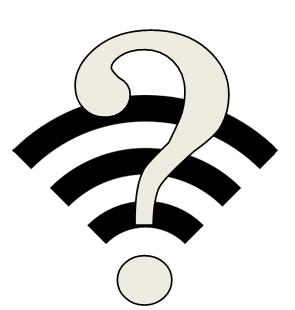If you can read this, ending net neutrality still has not broken the Internet.
April 23 has come and gone, and with it so too has the Federal Communications Commission’s so-called net neutrality regulation been rescinded, and yet somehow, the Internet is still here.
No service disruptions have been reported. Netflix, Hulu and other video streaming providers still work.
Nor are there any allegations of content being blocked so far. And there probably won’t be any.
By the time the industry’s 5G revolution is complete, the Internet will literally be 1,000 times faster than it is today. Nobody will be complaining about throttling speeds or anything else. The government cannot regulate innovation.
Naturally, none of that will be stopping the U.S. Senate, which will be voting on May 16 to reinstate the net neutrality regulation to solve a non-problem. They may or may not have the votes to pass that body. The vote will take place under the Congressional Review Act, and so requires a simple majority to pass.
All the while, the Senators will pretend mightily that what they are doing matters or is even essential.
“The Internet should be kept free and open like our highways, accessible and affordable to every American, regardless of ability to pay,” said Senate Minority Leader Chuck Schumer (D-N.Y.) in announcing the vote.
Schumer added, “The repeal of net neutrality is not only a blow to the average consumer, but it is a blow to public schools, rural Americans, communities of color and small businesses. A vote against this resolution will be a vote to protect large corporations and special interests, leaving the American public to pay the price.”
Apparently, in Schumer’s fantasy land, the Internet minus FCC regulation is racist, anti-rural and anti-small business, although he failed to provide an explanation for how exactly that is. Nor did Schumer supply any enumeration of how the Internet is not “free and open” at the moment without FCC regulation.
Which is what FCC Commissioner Ajit Pai has been saying all along. In a June 2017 interview with the Daily Caller’s Ginni Thomas, Pai said, “Prior to 2015, the Internet wasn’t broken. There wasn’t some market failure that warranted an unelected body of three commissioners imposing these regulations on the Internet.”
Pai has a point. Rarely has there been more misinformation about an issue than with net neutrality. The Internet is working just fine.
But even if one favored there being some degree of regulation, in fact, the Internet is still being regulated, just not by the FCC. Just as it was prior to 2015 and the net neutrality rules, ISPs are now regulated by the Federal Trade Commission (FTC).
According to the new FTC-FCC Memorandum of Understanding, “Consistent with its jurisdiction, the FTC will investigate and take enforcement action as appropriate against Internet service providers for unfair, deceptive, or otherwise unlawful acts or practices, including but not limited to, actions pertaining to the accuracy of the disclosures such providers make pursuant to the Internet Freedom Order’s requirements, as well as their marketing, advertising, and promotional activities.”
So, if a broadband provider attempted to throttle a streamer to entice customers into its own streaming service, depending on the facts, that might mean the FTC would step in. Which, that is their purview. Anticompetitive types of business practices that are basically already illegal under antitrust law, and it’s the FTC’s job to look into them, and has been for the past 104 years, long before there was a computer let alone an Internet. There was never a need to declare broadband a public utility by putting it under Title II of the Communications Act.
The agency understands its role under U.S. law. The FTC supported ending the FCC Internet regulation in Congressional testimony in November. According to an agency press release on the testimony, “the FTC has jurisdiction to protect consumers and maintain competition in most sectors of the economy but does not have authority over common carrier activities. In light of this, the FCC’s 2015 reclassification decision resulted in the FTC losing jurisdiction over the provision of Internet access service.” But now that the FCC rule is over, the agency said it was ready to step back into this role.
According to the release: “the FTC has expertise in the antitrust and consumer protection issues raised by net neutrality concerns. In 2007, the FTC authorized staff to issue a report examining broadband Internet connectivity in general and network neutrality in particular. The 2007 FTC report also discussed discrimination, blocking, vertical integration, and data prioritization practices; examined the then-current and likely future state of broadband competition; analyzed Internet service provider practices under antitrust and consumer protection laws; reviewed proposed net neutrality solutions; and suggested guiding principles.”
Upon ending net neutrality, FTC acting commissioner Maureen Ohlhausen issued a statement praising the move, saying, “The FCC’s action today restored the FTC’s ability to protect consumers and competition throughout the Internet ecosystem. The FTC is ready to resume its role as the cop on the broadband beat, where it has vigorously protected the privacy and security of consumer data and challenged broadband providers who failed to live up to their promises to consumers. In addition, the FCC’s new transparency rules provide additional tools to help ensure that consumers get what they expect from their broadband providers, who will be required to disclose their traffic management practices.”
Of course, don’t expect many Senators to talk too much about how federal law affected the Internet prior to 2015 or impacts it today. Or the fact that the Internet isn’t broken. Or how the 2015 regulation by the FCC was a power grab, whereas, the FTC has always been empowered by Congress to rein in the sorts of anticompetitive activities. Net neutrality has always been a regulation in search of a problem.
Robert Romano is the Vice President of Policy for Americans for Limited Government.








